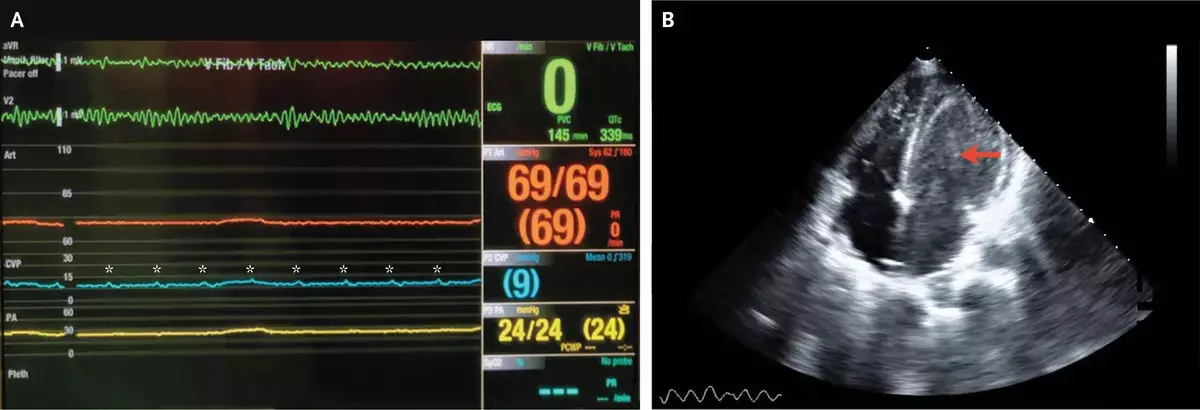- Home
- Medical news & Guidelines
- Anesthesiology
- Cardiology and CTVS
- Critical Care
- Dentistry
- Dermatology
- Diabetes and Endocrinology
- ENT
- Gastroenterology
- Medicine
- Nephrology
- Neurology
- Obstretics-Gynaecology
- Oncology
- Ophthalmology
- Orthopaedics
- Pediatrics-Neonatology
- Psychiatry
- Pulmonology
- Radiology
- Surgery
- Urology
- Laboratory Medicine
- Diet
- Nursing
- Paramedical
- Physiotherapy
- Health news
- Fact Check
- Bone Health Fact Check
- Brain Health Fact Check
- Cancer Related Fact Check
- Child Care Fact Check
- Dental and oral health fact check
- Diabetes and metabolic health fact check
- Diet and Nutrition Fact Check
- Eye and ENT Care Fact Check
- Fitness fact check
- Gut health fact check
- Heart health fact check
- Kidney health fact check
- Medical education fact check
- Men's health fact check
- Respiratory fact check
- Skin and hair care fact check
- Vaccine and Immunization fact check
- Women's health fact check
- AYUSH
- State News
- Andaman and Nicobar Islands
- Andhra Pradesh
- Arunachal Pradesh
- Assam
- Bihar
- Chandigarh
- Chattisgarh
- Dadra and Nagar Haveli
- Daman and Diu
- Delhi
- Goa
- Gujarat
- Haryana
- Himachal Pradesh
- Jammu & Kashmir
- Jharkhand
- Karnataka
- Kerala
- Ladakh
- Lakshadweep
- Madhya Pradesh
- Maharashtra
- Manipur
- Meghalaya
- Mizoram
- Nagaland
- Odisha
- Puducherry
- Punjab
- Rajasthan
- Sikkim
- Tamil Nadu
- Telangana
- Tripura
- Uttar Pradesh
- Uttrakhand
- West Bengal
- Medical Education
- Industry
Case of AV dissociation during ventricular fibrillation reported in NEJM

Dr Jonathan R. Salik and Dr Sunu S. Thomas at Massachusetts General Hospital, Boston, MA have reported a case of atrioventricular dissociation during ventricular fibrillation that has been published in the New England journal of Medicine.
Atrioventricular (AV) dissociation is an electrocardiographic syndrome; a descriptive term for a variety of conditions of abnormal cardiac conduction which all feature independent function of the atria and ventricles. AV dissociation can be subclassified as AV dissociation by default (an independent ventricular pacemaker responds to slowing of the dominant atrial pacemaker) versus AV dissociation by usurpation (acceleration of a latent pacemaker takes control of cardiac conduction by exceeding the intrinsic atrial rate). Inclusion of third degree AV block (complete heart block) as a manifestation of AV dissociation is controversial, yet is functionally appealing in that this disorder also features independent activity of the atria and ventricles.
50-year-old woman with a history of bicaval cardiac transplantation presented to the emergency department with a 1-week history of dyspnea, fatigue, and weight gain. A transthoracic echocardiogram showed newly reduced left ventricular systolic function, and an endomyocardial biopsy confirmed acute cellular rejection of the transplanted heart. Her hemodynamic status deteriorated, thereby prompting initiation of venoarterial extracorporeal membrane oxygenation. Sustained ventricular fibrillation developed (Panel A, green tracing), with a loss of right and left ventricular contractility, as indicated by a nonpulsatile pulmonary arterial waveform (Panel A, yellow tracing) and systemic arterial waveform (Panel A, red tracing). A regular pulsatile central venous waveform was observed (Panel A, blue tracing and asterisks). Repeat transthoracic echocardiography confirmed near ventricular standstill with a left ventricular thrombus (Panel B, arrow; and video) and preserved right atrial contractility with tricuspid valve opening (corresponding to the central venous waveform). This observation, coupled with concomitant mitral valve opening, indicated atrioventricular dissociation during ventricular fibrillation. Premature closure of the atrioventricular valves immediately after atrial contraction was also observed. The patient had worsening multiorgan failure and died 1 week after presentation.
Dr Kamal Kant Kohli-MBBS, DTCD- a chest specialist with more than 30 years of practice and a flair for writing clinical articles, Dr Kamal Kant Kohli joined Medical Dialogues as a Chief Editor of Medical News. Besides writing articles, as an editor, he proofreads and verifies all the medical content published on Medical Dialogues including those coming from journals, studies,medical conferences,guidelines etc. Email: drkohli@medicaldialogues.in. Contact no. 011-43720751


